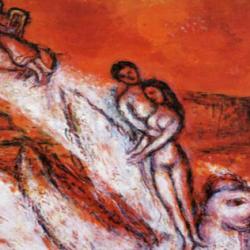Ecclesiastes 2:24-25: There is nothing better for a man than to eat and drink and tell himself that his labor is good. This also I have seen that it is from the hand of God. For who can eat and who can have enjoyment without Him?
Many Christians have concluded that Ecclesiastes is an odd book that teaches a form of cynicism that contradicts most of the Bible. As we saw in the sermon this morning, this partly arises from mistranslations, which say that Solomon declares the whole world to be meaningless vanity.
He does not. He says that human life and all human achievements are vapor, breath, and shepherding wind. Trying to control the world, or to grasp it with our minds, is, as James Jordan puts it, like trying to sculpt the mist. It doesn’t stay put. This is not some odd teaching of Ecclesiastes. This insight into the mutability and instability of creation, its complete contingency and dependence, is something found from the first verse of the Bible to the last.
On the other hand, Ecclesiastes is sometimes read as a hedonistic manifesto, as if Solomon suddenly turned Epicurean when he sat down to write it. Eat drink and be merry, Solomon says, because you are going to die – if not tomorrow, then surely someday. But the hedonistic reading of the book is as misleading as the cynical reading.
When Solomon talks about eating and drinking and rejoicing, we need to remember who Solomon was and what he did. Solomon was king of Israel, and the greatest of his achievements was building the temple. When he encourages us to eat, drink, and rejoice, he uses language common in Deuteronomy, which talks about eating and drinking and rejoicing in the presence of God at His sanctuary.
What puts the vaporousness of life into perspective, what helps us respond joyfully to the injustices and evils of life, what keeps us from cynicism and despair is not feasting in general. Epicurean feasting can be and often is as cynical as Stoic asceticism. No: What puts the life in perspective is the table that Yahweh spreads at His house, where we eat and drink and give thanks.
In the midst of the vapor, God has set up a table and invited us to eat and drink. This is our portion from the hand of God, our Eucharistic portion.















